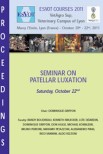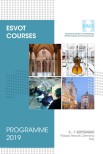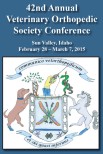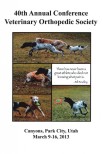Objective: The aim of our study was to investigate a degradable polylactide-collagen scaffold (COPLA) in the treatment of shoulder osteochondritis dissecans (OCD) in dogs.
Study design: The study was a controlled, randomized, blinded clinical trial with a parallel group design with a 1.5-year follow-up. Twenty dogs with uni- or bilateral shoulder OCD (29 shoulders) were randomized to receive a COPLA or arthroscopic debridement only (Control). The outcome of treatment was assessed with gait and stance analysis, passive range of motion measurement, pain and lameness evaluation, Helsinki Chronic Pain Index, and computed tomography (CT).
Results: Eighteen dogs (25 shoulders) completed the study. The clinical outcome variables improved significantly from baseline in COPLA and Control groups after treatment but no significant differences emerged between groups. Significantly fewer COPLA than Control shoulders had osteoarthritis (OA) in CT at 6 months (p = 0.019) but the difference was not significant at 1.5 years. At 1.5 years, all dogs were sound and pain-free in joint palpation, but OA was diagnosed in 13/18 dogs (18/25 shoulders) with CT.
Conclusion: The results suggest that COPLA scaffold slowed down the development of OA at 6 months but it did not improve the clinical recovery or prevent OA in dogs with shoulder OCD in long-term follow-up at 1.5 years compared with arthroscopic debridement only. Regardless of the treatment method, clinical recovery was good, but OA developed in the majority of dogs.









